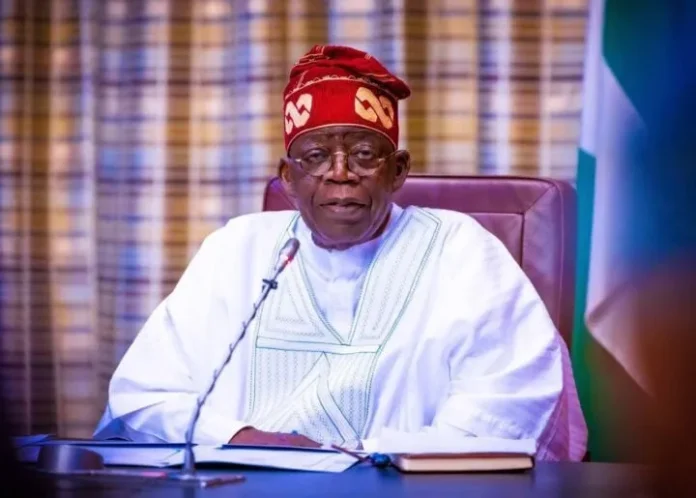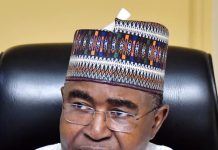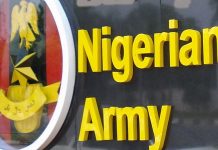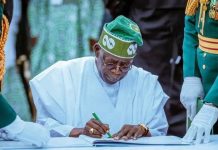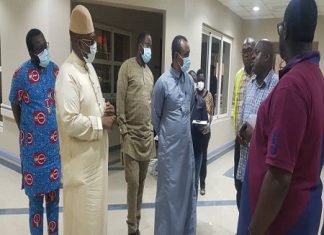The most recent World Bank study, which estimates that 139 million Nigerians are living in poverty, has drawn criticism from the Presidency, which calls the number “unrealistic, exaggerated, and detached from Nigeria’s actual economic conditions.”
Sunday Dare, President Bola Tinubu’s Special Adviser on Media and Public Communication, announced this on Thursday using his official 𝕏 feed. He insisted that the data must be appropriately contextualized within frameworks for measuring poverty around the world before they can be regarded as fact.
Although Nigeria cherishes its collaboration with the World Bank and its contributions to policy research, the cited figure has to be appropriately contextualized. “It is not feasible,” Dare stated.
The World Bank’s estimate, according to the Presidency, was based on the global poverty line of $2.15 per person per day, which was approved in 2017 using the Purchasing Power Parity (PPP) methodology. It should not be construed as an actual number of Nigerians living below the poverty level.
“One should exercise caution when interpreting the World Bank’s figures as an exact, up-to-date headcount,” Dare said.
As a benchmark established in 2017 PPP terms, the estimate is based on the global poverty level of $2.15 per person per day. The amount is far more than Nigeria’s new minimum salary of ₦70,000, or around ₦100,000 at today’s exchange rate, or roughly $64.5 per month if converted nominally. The metric is obviously an analytical tool and does not accurately represent local income reality.
Such standards, he said, do not take into account Nigeria’s distinct economic structure, cost disparities, or the subsistence-based means of subsistence that support millions of households in rural and semi-urban areas.
Since Nigeria’s most recent significant household survey was conducted in 2018–2019, the Presidency contended that PPP-based poverty assessments mainly rely on historical consumption data and, as a result, do not accurately reflect current economic dynamics or account for the informal sector activities that constitute the foundation of Nigeria’s actual economy.
The informal and subsistence economies that support millions of households are frequently ignored in poverty assessments conducted using the PPP technique, which is based on historical consumption data. As a result, the government views the number as a global estimate that has been simulated rather than an actual depiction of the situation in 2025. The trajectory—which is currently one of recovery and inclusive transformation in Nigeria—is what really counts, the statement said.
“Progress should be the main focus, not projections.”
The Federal Government, according to Dare, sees the World Bank’s figure as a chance to show further development rather than as a condemnation.
Despite past shocks, he pointed out that Nigeria’s economy was now stabilizing and exhibiting indications of recovery thanks to reforms and focused social investments.
The direction of change is more important than a fixed number. The economy of Nigeria is recovering and undergoing inclusive transformation. He stated that the Tinubu administration is working to address the systemic inequalities that have impeded inclusive growth and productivity for many years.
Initiatives to Combat Poverty and Reform Achievements Listed by FG
In order to combat poverty and lessen the effects of economic changes on the populace, the Presidency described a number of ongoing initiatives under President Tinubu’s Renewed Hope Agenda.
The following initiatives are listed:
15 million households worldwide are now covered by the Conditional Cash Transfer Program, which uses a digitally validated National Social Register. Families that are vulnerable and impoverished have received more than ₦297 billion since 2023.
Targeting all 8,809 electoral wards, the Renewed Hope Ward Development Program aims to provide livelihoods, micro-infrastructure, and critical social services at the local level.
Strengthened programs like N-Power, GEEP microloans (TraderMoni, MarketMoni, FarmerMoni), and the Home-Grown School Feeding Program are examples of National Social Investment Programs (NSIP), which aim to preserve jobs, support small businesses, and keep kids in school.
Food Security Measures: Reviving strategic food stockpiles, distributing subsidized grains and fertilizers, and forming partnerships for agricultural mechanization are all ways to reduce inflationary pressures on the cost of staple foods.
Funding important housing, transportation, and energy projects to lower living expenses and create jobs is the goal of the Renewed Hope Infrastructure Fund.
National finance Guarantee Company: Increasing small company, female, and young entrepreneur access to affordable finance through risk-sharing agreements with commercial banks.
Dare claimed that these measures, along with budgetary restraint and currency rate adjustments, were already having quantifiable macroeconomic effects.
“Reforms are difficult but necessary.” The presidency
The statement also emphasized how difficult changes like eliminating fuel subsidies, unified exchange rates, and reallocating funds to productive industries were, but that they were “necessary to fix deep-rooted inefficiencies” that had hampered national production for decades.
“This administration is actively correcting long-standing structural distortions, such as overdependence on imports, productivity constraints, and regional inequality,” Dare said, adding that the World Bank’s evaluation must take these factors into account.
These changes are already reviving growth momentum and macroeconomic stability. The World Bank has admitted that these measures are effective.
He emphasized that the government’s next priority was to make sure that macroeconomic stability results in the provision of inexpensive food, good jobs, and dependable infrastructure for citizens.
Reiterating the government’s faith in its economic trajectory, Dare stated that the Tinubu administration was committed to making sure that the average Nigerian will benefit from progress.
According to him, “Nigeria rejects exaggerated statistical interpretations detached from local realities.”
In order to create a sustainable, inclusive economy where growth directly raises living standards, the government is still committed to empowering households and increasing opportunities. Reforms are required. The course is correct. Nigeria is firmly laying the groundwork for a more equitable and affluent nation.
Mathew Verghis, the World Bank’s Country Director for Nigeria, stated that poverty rates were still high in spite of recent monetary and fiscal reforms during the October 2025 Nigeria Development Update (NDU) event in Abuja.
He stated that “many households are still struggling with eroded purchasing power despite these stabilization gains.” “139 million Nigerians are expected to be living in poverty in 2025.”
Verghis hailed the Federal Government’s elimination of gasoline subsidies and unification of the exchange rate as courageous and groundbreaking measures, but cautioned that the benefits of these reforms may be lost if they are not translated into better living conditions.
“Nigeria must raise its citizens’ level of living by implementing macroeconomic stability. “Going from policy to people is the challenge now,” Verghis stated.
Nigeria must prioritize cutting inflation, increasing the effectiveness of public spending, and growing social safety programs for its most vulnerable inhabitants, according to the World Bank report “From Policy to People: Bringing the Reform Gains Home.”
Join Television Nigerian Whatsapp Now
Join Television Nigerian Facebook Now
Join Television Nigerian Twitter Now
Join Television Nigerian YouTUbe Now

